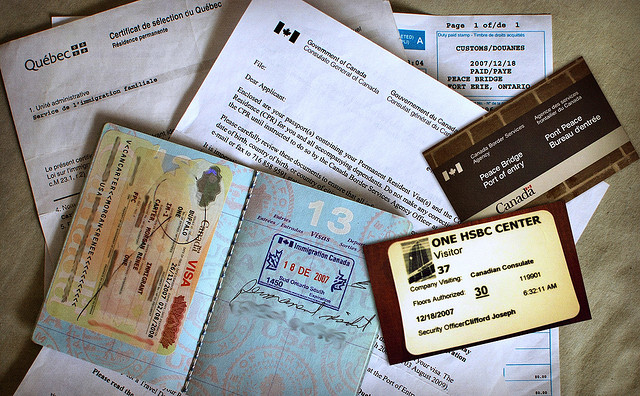Canada Immigration Humanitarian Grounds
> Immigration Categories > Humanitarian Grounds
Humanitarian and compassionate grounds exist when unusual, undeserved or disproportionate hardship would result if the applicant had to leave Canada. The following are examples of typical cases that have been recognized by Citizenship and Immigration Canada as humanitarian and compassionate cases, but are by no means exhaustive:
Spouses Applying at Port of Entry
Usually, a spouse applying for admission as an immigrant at a port of entry without an immigrant visa would be reportable under the Immigration Act for intending to reside in Canada permanently without an immigrant visa. However, Senior Immigration Officers, at the port of entry, are instructed to assess the bona fides of the Marriage relationship. If it is found to be a genuine relationship, a Minister's Permit will be issued pending finalization of the immigrant's inland application for landing.
Spouses Applying Within Canada
The separation of spouses entails hardship in the case of a genuine marriage where the parties intend to marry with the primary intention of permanently residing with each other. This hardship will warrant favorable consideration for inland processing and landing. There is no need to prove additional hardship beyond the prospect of a lengthy separation if the immigrant was required to apply for an immigrant visa abroad.
Marriage Breakdown
There are situations in which a Canadian sponsor withdraws the sponsorship prior to the spouse being granted landing because of the breakdown of the relationship. The Immigration officer will taken into consideration the spouse's ability to become successfully settled in Canada, and whether humanitarian and compassionate grounds exist. The following factors will be considered:
|
De Facto Family Members
Parents, children, or persons unrelated by blood, who are de facto family members of a Canadian citizen or permanent resident and who are financially or emotionally dependent could experience undue hardship if required to apply abroad for an immigrant visa.
Illegal Residents
An illegal resident is a person who has no legal status in Canada. This may be someone who entered Canada as a visitor and has remained in Canada beyond the expiration of his or her temporary status. The illegal resident has been in Canada for such a long time, and is so established that he or she has in fact, if not in law, established residence in Canada and not abroad. These individuals are self supporting, and have severed ties with their home country, and would suffer hardship if required to leave Canada.
Facing a Life Threatening Situation in Country of Origin
Where there exists a special situation in the applicant's home country that prevents the applicant from applying at a visa office, the applicant may request that an inland application be considered on the basis of humanitarian and compassionate grounds. The applicant has a strong belief that s/he will face a life threatening situation in his or her homeland as a direct result of the political or social situation in that country.
Individuals in this type of situation should also consider applying as a Conventional Refugee.
Long Term Foreign Workers
Foreign workers who have been in Canada for years, with continual employment, may warrant inland landing if hardship would result in applying for landing at a visa office. Such persons may have homes in Canada, children who were born and educated in Canada, with no real residence abroad.
Home | Who We Are | Services | Immigration | Employment | Retain Us | Archive | Links | Navigation
Business Profile | Professional Credentials | Client References | Contact Information | Index of Topics | Search

